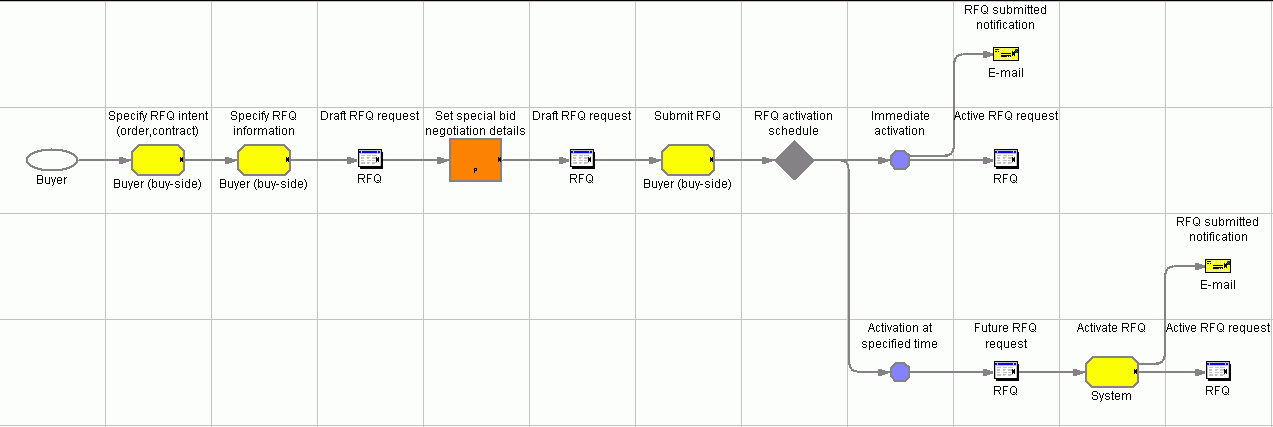Process: Create a special bid request
Flow

Objective
To create a special bid request.
Description
A buyer can create an RFQ for unique variations of goods and services that are offered in the catalog. Buyers can initiate RFQ either by directly adding products/categories to the RFQ, or by first creating a shopping cart, and then create a RFQ based on the contents of the shopping cart. They can include categories or products for percentage price adjustment or fixed price negotiation. Buyers can include multiple products in one RFQ. When the buyer submits an RFQ request, it is placed into a "future" or "active" state. A seller can view the RFQ and submit a response when the request is in an "active" state. A buyer can also change or cancel an RFQ. When the buyer submits an RFQ request, it is placed into a "future" or "active" state. A seller can view the RFQ and submit a response when the request is in an "active" state.
Features
- An RFQ can be for a contract or an order.
- Buyers can include categories for percentage price adjustment.
- Buyers can include items, packages, catalog products or dynamic kits in the RFQ for percentage price adjustment or fixed price negotiation. Dynamic kits can only be added from shopping cart.
Edition
Enterprise
Subprocesses
Tasks
| Task | Description | Role |
|---|---|---|
| Activate RFQ |
Change the RFQ to the "active" state when the closing rule is met (in multi-seller RFQ) or when the closing time is reached (in a single-seller RFQ or a special bid RFQ). |
System |
| Specify RFQ information |
Set the general information of the request, such as the activation time of the RFQ (the date on which responses will first be accepted), the closing time of the RFQ (the last date on which responses will be accepted). These two dates indicate the period during which responses will be accepted. |
Buyer (buy-side) |
| Specify RFQ intent (order,contract) |
Specify whether the RFQ is to result in a contract or an order. |
Buyer (buy-side) |
| Submit RFQ |
Submit the RFQ. The sellers then respond to the RFQ request. |
Buyer (buy-side) |
Business artifacts
(C) Copyright IBM Corporation 1996, 2006. All Rights Reserved.